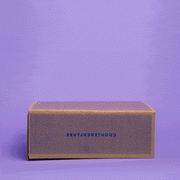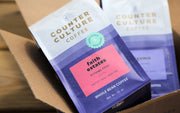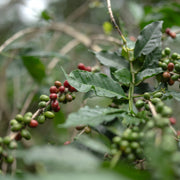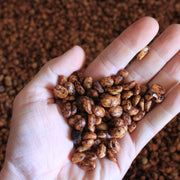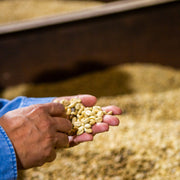Espresso made from the world’s most exceptional coffee varieties, grown by the most exceptional farmers. A line of four, meticulously made cappuccinos, each with velvety texture and identical latte art. Signature beverages designed to mimic melting sorbet, or spun in a centrifuge to enhance flavor clarity. Sounds like a dreamy coffee experience, doesn’t it?
Welcome to the world of the World Barista Championship, an event organized by the SCA subsidiary World Coffee Events (WCE). One of seven coffee competitions managed by WCE, the Barista Championship provides a platform for baristas to sharpen their skills and break the mold of what espresso drinks can look and taste like. These performances may not look like your average cafe service, but they can (and do!) influence quality-forward coffee preparation.
There are other coffee competitions that exist including Coffee Masters, Coffee Fest events, and Barista League, but 99.9% if a barista is talking about a coffee competition, they are talking about the Barista Championship.
Counter Culture Coffee is proud to have supplied coffee for three US Barista Champions, several national finalists, and countless other competitors. Find out about how this competition works by reading our explainer!

Katie Cargulio competing at the USA Barista Championships in 2013
An Introduction to the Barista Championship
The most popular coffee competition, the Barista Championship centers on espresso preparation, challenging baristas to display their skills in three rounds: espresso, espresso and milk, and signature beverage.
Baristas are judged by a panel of four sensory judges, two technical judges, and one head judge. Sensory judges take note of the quality of each drink served, while also scoring heavily based on the accuracy of “flavor calls”—the tasting notes identified by the barista for each scored characteristic of the drinks, such as acidity, flavor, and texture. Technical judges inspect aspects of the barista’s skill, ranging from the precision of ingredients used to the cleanliness of the bar. The head judge ensures consistency across all beverages served and acts as a calibration point for all judges’ scores.
Competitors produce elaborate drinks, served with compelling presentations and intentional place settings. With scoring for fields like hospitality, it’s vital for baristas to ensure an inviting, welcoming atmosphere, serving water to judges between courses and building a sense of personal connection.

Image credit US CC
Preliminaries
Commonly referred to as Prelims, the first round of competition offers prospective contestants an opportunity to dabble with competitions without much investment. At multiple events around the country, individuals compete with sponsor-provided coffees and conduct an abridged version of the competition.
Baristas choose their competition coffee from a small line-up of compulsory coffees. While the roaster will not be named, details such as the coffee’s country of origin, processing method, and elevation will be disclosed.
The preliminary barista competition typically consists of two rounds: espresso and milk. Serving a small panel of judges, baristas describe the flavor profile of their coffee as espresso, as well as how milk transforms those flavors.
A select number of the top-scoring baristas automatically earn a slot at Qualifiers. Baristas outside of this scoring range may still compete at Qualifiers, although they have to vie for general registration slots with any other prospective competitors.

Qualifiers
The first required round of competition, Qualifiers hold spots for Preliminaries finalists, winners of a weighted lottery, and open registrants.
These events more closely resemble national and world competitions, although they are two rounds rather than three. While Preliminaries require an espresso course and a milk course, Qualifiers ask competitors to serve a signature beverage course.
Signature beverages should feature flavors that complement the coffee’s flavor. For example, if the barista identifies “cherry” as a flavor note in their coffee, they may decide to use a cherry-based component in their signature drink. They might also pair a flavor like almond that will harmonize with the coffee’s cherry note to create new flavors.
The 24 highest-scoring competitors from Qualifiers advance to Nationals. Regardless of rank, baristas receive their scoresheets after the award ceremony, and competitors are able to debrief with their judges. This feedback helps barista improve their skills across the board, and it’s especially useful for improving scores in future competitions.

Nationals
With the title of US Barista Champion on the line, 24 competitors compete over the course of three days. At the national stage, baristas must serve all three courses: espresso, milk, and signature beverage. While performances at Qualifiers last 10 minutes, rounds at Nationals last for 15 minutes to accommodate the additional round.
National competition also tests for consistency in skill, requiring baristas to perform their routine multiple times. With two elimination rounds, the third and final round consists of the six highest-scoring baristas.
It’s an incredible feat for baristas to make it to the national stage, much less to earn a slot in the final six. However, only one person will go on to be crowned US Barista Champion.
The champion is crowned at the competition’s closing, earning the opportunity to represent the country at the World Barista Championship.
Worlds
In a new location each year, national champions convene to vie for the title of World Barista Champion. Employing the same three rounds as Nationals, this competition showcases some of the boldest innovations in the coffee industry. The use of Mahlkonig’s EK43 for espresso grinding, coffee processed via carbonic maceration, and milk processing known as cryodessication all gained notoriety thanks to the world stage.
World Barista Champions earn their titles with performances that exhibit the most spectacular coffees, the most innovative presentations, and the best service. The few who are lucky enough to win this title earn a platform based on their commitment to the craft of specialty coffee, granting them a major influence on the industry.

The Barista Championship gives coffee professionals a reason to push their skills and rewards excellence in innovation, hospitality, and quality coffee. Few may earn the title of champion, but competitors gain invaluable experience as they refine their coffee craft.
While these competitions can be resource-intensive for working baristas, Counter Culture Coffee is committed to supporting baristas in their coffee-driven journeys. If you’re interested in competing and using Counter Culture Coffee, please send us a message!
